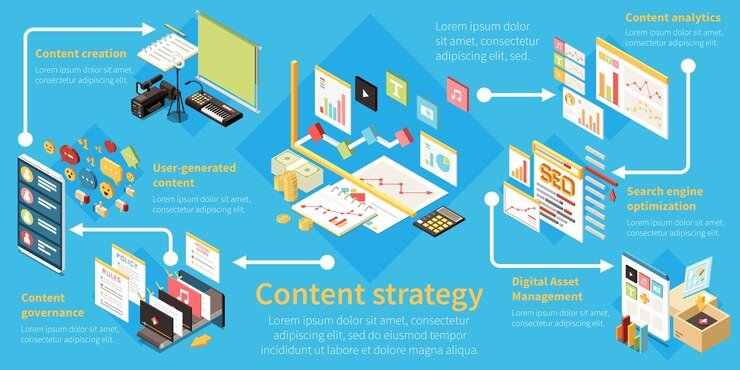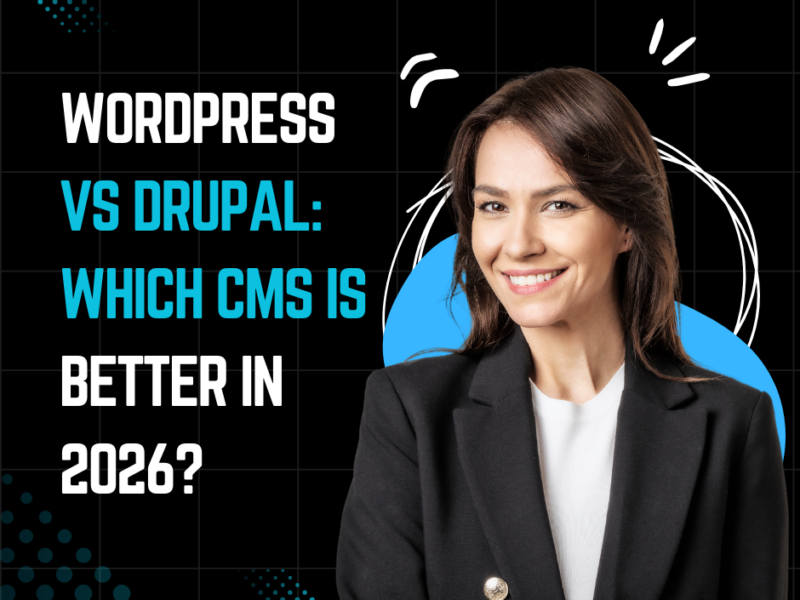Content Management Systems (CMS)
Content Management Systems is a software application that allows users to create, manage, and modify digital content on a website without requiring technical expertise in web development or programming. CMS platforms provide an intuitive interface for content editors, making it easier to publish, edit, and organize various types of content such as text, images, videos, and documents.
CMS platforms typically offer features such as template-based design, which allows users to customize the look and feel of their websites without writing code. They also support collaborative workflows, enabling multiple users to contribute and manage content while maintaining version control. Many CMSs are extensible through plugins or modules, allowing additional functionality such as e-commerce, SEO optimization, and social media integration.
Here are the types of Content Management Systems (CMS)
Also read: Software Development Life Cycle (SDLC) models
1. Traditional CMS: Traditional CMS platforms like WordPress, Joomla, and Drupal offer robust features for creating, managing, and publishing content. They typically provide themes/templates for design flexibility and support plugins/modules for extending functionality. Examples: WordPress, Joomla, Drupal.
2. Headless CMS: Headless CMS separates the content management and content presentation layers. It allows content creators to manage content independently from the frontend display, making it versatile for omnichannel publishing and supporting various devices and platforms. Examples: Contentful, Strapi, Sanity.
3. Decoupled CMS: Decoupled CMS combines aspects of both traditional and headless Content Management Systems. It provides a backend for content management while allowing developers to use their preferred frontend technologies for presentation, offering flexibility without sacrificing content management capabilities. Examples: Drupal (with Decoupled Drupal setup), Kentico Kontent.
4. Enterprise CMS: Enterprise-level Content Management Systems platforms cater to large organizations with complex content management needs. They offer scalability, robust security features, multi-site management capabilities, and integration with enterprise systems such as CRM and ERP. Examples: Adobe Experience Manager, Sitecore, and Liferay.
5. Document Management System (DMS): DMS focuses on managing and organizing documents and files. It includes version control, document sharing, collaboration features, and advanced search capabilities, making it ideal for organizations with document-intensive workflows. Examples: SharePoint, Alfresco, Documentum.
6. Component Content Management System (CCMS): CCMS is designed for managing structured content, often used in technical documentation, product catalogs, and regulatory compliance. It enables content reuse, localization, and automated publishing to multiple formats. Examples: Vasont Systems, IXIASOFT, FontoXML.
7. Web Experience Management (WEM): WEM integrates content management with digital marketing tools to create personalized user experiences. It includes features like A/B testing, customer segmentation, and analytics to optimize content delivery and engagement. Examples: Adobe Experience Manager, Sitecore Experience Platform.
8. E-commerce CMS: E-commerce CMS platforms like Shopify, Magento, and WooCommerce are tailored for online stores. They provide features such as product management, inventory control, shopping cart functionality, payment gateway integration, and order management. Examples: Shopify, Magento, WooCommerce.
Also read: How To Become a UI UX Designer

Features Of Content Management Systems
Also read: How to Create an Array in Java
1. Content Creation and Editing:
CMS platforms provide intuitive interfaces for creating and editing content without requiring technical expertise. Users can format text, add images, embed multimedia, and preview content before publishing.
2. Content Organization and Management:
CMSs offer tools to organize content into categories, tags, and hierarchical structures (e.g., folders or taxonomies). This helps users navigate and search for content efficiently.
3. Version Control and Revision History:
Version control capabilities allow users to track changes made to content over time, compare different versions, and revert to previous versions if needed. This ensures content accuracy and facilitates collaborative editing.
4. User and Access Management:
CMS platforms support role-based access control (RBAC) to manage user permissions and define access levels. Administrators can assign roles (e.g., admin, editor, contributor) with specific rights to create, edit, or publish content.
5. Workflow Management:
Workflow features automate content review and approval processes. Users can create custom workflows with defined stages (e.g., draft, review, approve) and notifications to streamline content production and ensure quality control.
6. Content Publishing:
CMSs allow content to be published immediately or scheduled for future release. Publishing controls enable users to set publication dates, manage content visibility, and control publishing across multiple channels.
7. Multi-channel Publishing:
Content Management Systems platforms support publishing content to various channels and formats, including websites, mobile apps, social media, and email newsletters. Content is optimized for each channel to ensure a consistent user experience.
8. SEO and Metadata Management:
CMSs provide tools for SEO-optimized content for search engines (SEO) by adding meta tags, descriptions, and structured data. Metadata management enhances content discoverability and improves organic search rankings.
9. Responsive and Mobile-friendly Design:
Modern Content Management Systems platforms offer responsive design capabilities, ensuring that content displays correctly and functions well on different devices and screen sizes. Mobile-friendly features enhance user experience across mobile devices.
10. Analytics
Integrated analytics tools track website traffic, user engagement metrics, and content performance. CMSs generate reports on key metrics (e.g., page views, bounce rate, conversions) to measure content effectiveness and inform content strategy.
Security and Backup:
CMSs prioritize content security with features such as user authentication, HTTPS support, data encryption, and regular security updates. Backup and recovery tools ensure data integrity and protect against data loss.
FAQ:
What are the benefits of using a CMS?
CMSs simplify content management by providing a user-friendly interface.
They support collaborative workflows, allowing multiple users to work on content.
Which CMS should I choose for my website?
The choice of Content Management Systems depends on factors such as your technical expertise, specific website requirements (e.g., e-commerce, blogging), scalability needs, and budget. Popular Content Management Systems options include WordPress, Drupal, Joomla, and Shopify (for e-commerce).
Are CMS platforms secure?
Security is a critical consideration when selecting a CMS. Leading CMSs regularly release security updates and patches to address vulnerabilities. It’s essential to keep your Content Management Systems and plugins/modules up to date and follow best practices for securing your website.
Conclusion:
Content Management Systems empower businesses and individuals to manage their online presence effectively, offering user-friendly interfaces, robust features, and scalability. Whether you’re a blogger, small business owner, or enterprise, choosing the right CMS can streamline content management processes and enhance your website’s functionality and performance.








